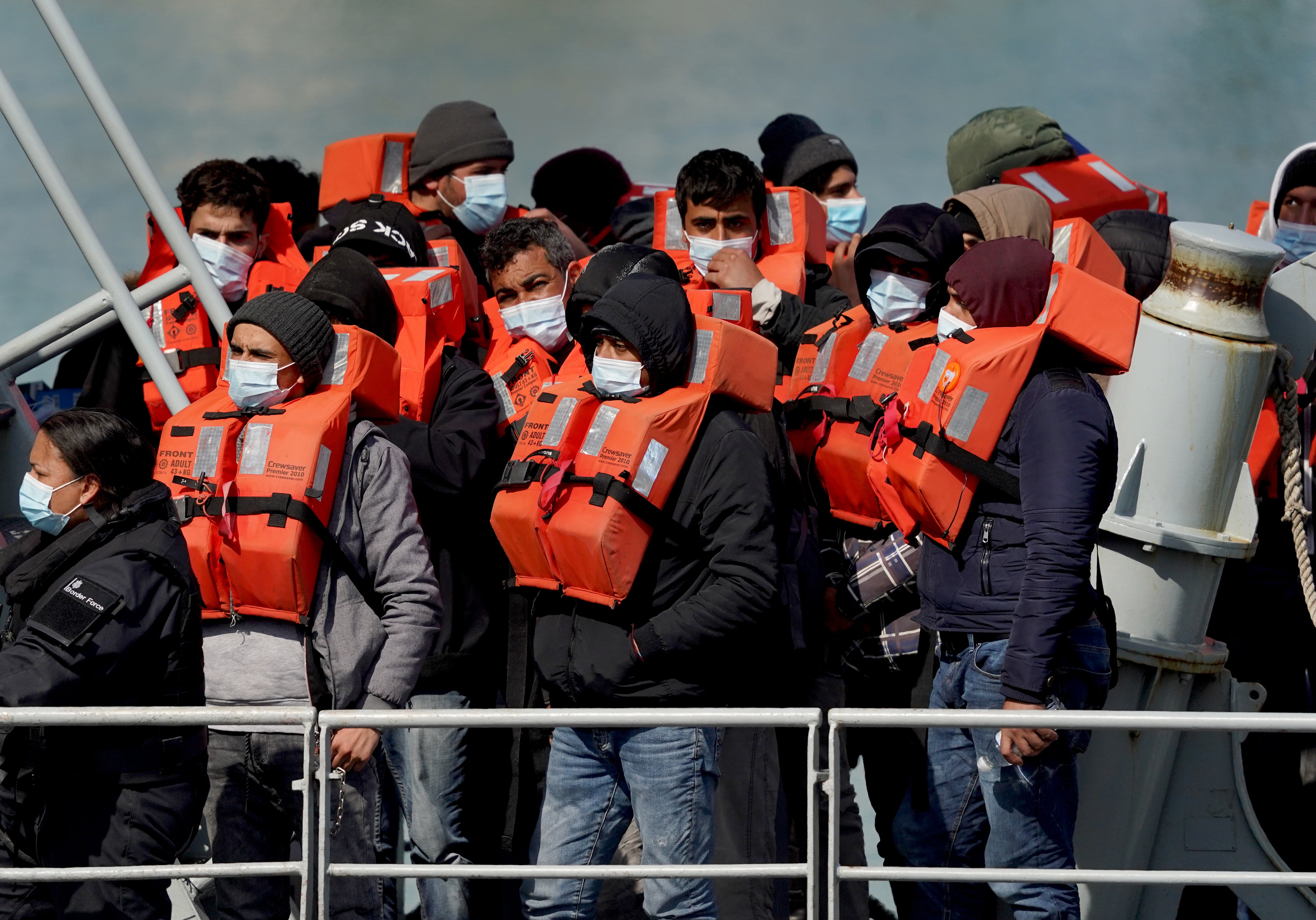‘More than 200 people arrive in Dover after 11-day pause in Channel crossings’
Witnesses reportedly saw large groups being brought ashore by UK Border Force officials on Sunday.

More than 200 people have crossed the Channel to Dover after an apparent pause of 11 days, the PA news agency understands.
Witnesses saw large groups being brought ashore by UK Border Force officials on Sunday, BBC News reported.
The Ministry of Defence (MoD) is understood to be aware of a number of events still ongoing in the Channel but would not comment on specific numbers of people arriving.
The MoD took over control of migrant operations in April, when the Government also announced controversial plans to send some of those making the cross-Channel journey to Rwanda.
The rise in dangerous Channel crossings is unacceptable. Not only are they an overt abuse of our immigration laws but they also impact on the UK taxpayer, risk lives and our ability to help refugees come to the UK via safe and legal routes
There is believed to have been a 11-day break in activity around the Channel from April 20 to 30, when no crossings were recorded amid reports of strong winds and choppy seas.
Two longer gaps of 16 and 13 days without crossings were recorded earlier this year, before the Rwanda deal was announced.
The MoD publishes data on the daily number of detected border crossings retrospectively, so Sunday’s official figures will be confirmed on Monday.
A Government spokesperson said: “The rise in dangerous Channel crossings is unacceptable. Not only are they an overt abuse of our immigration laws but they also impact on the UK taxpayer, risk lives and our ability to help refugees come to the UK via safe and legal routes.”
The Government’s Nationality and Borders Bill – dubbed the anti-refugee Bill by campaigners as it makes it a criminal offence to knowingly arrive in the UK illegally and includes powers to process asylum seekers overseas – became law on Thursday.
Earlier in April, Home Secretary Priti Patel signed what she described as a “world-first” agreement with Rwanda.
The deal will see the east African nation receive asylum seekers deemed by the UK to be inadmissible, having arrived “illegally” under new immigration rules, but it has been met with criticism and is already facing legal challenges.
Since the start of the year, at least 6,693 people have reached the UK after navigating busy shipping lanes from France in small boats, according to data compiled by PA.
That is more than three times the amount recorded this time last year (2,004) and over six times the figure for the same period in 2020 (1,006).
Typically there can be periods of several days or weeks without migrant crossings throughout the year, often depending on weather conditions.
The longest period without any crossings so far in 2022 was 16 days, between January 27 and February 11, PA analysis of Government figures shows.